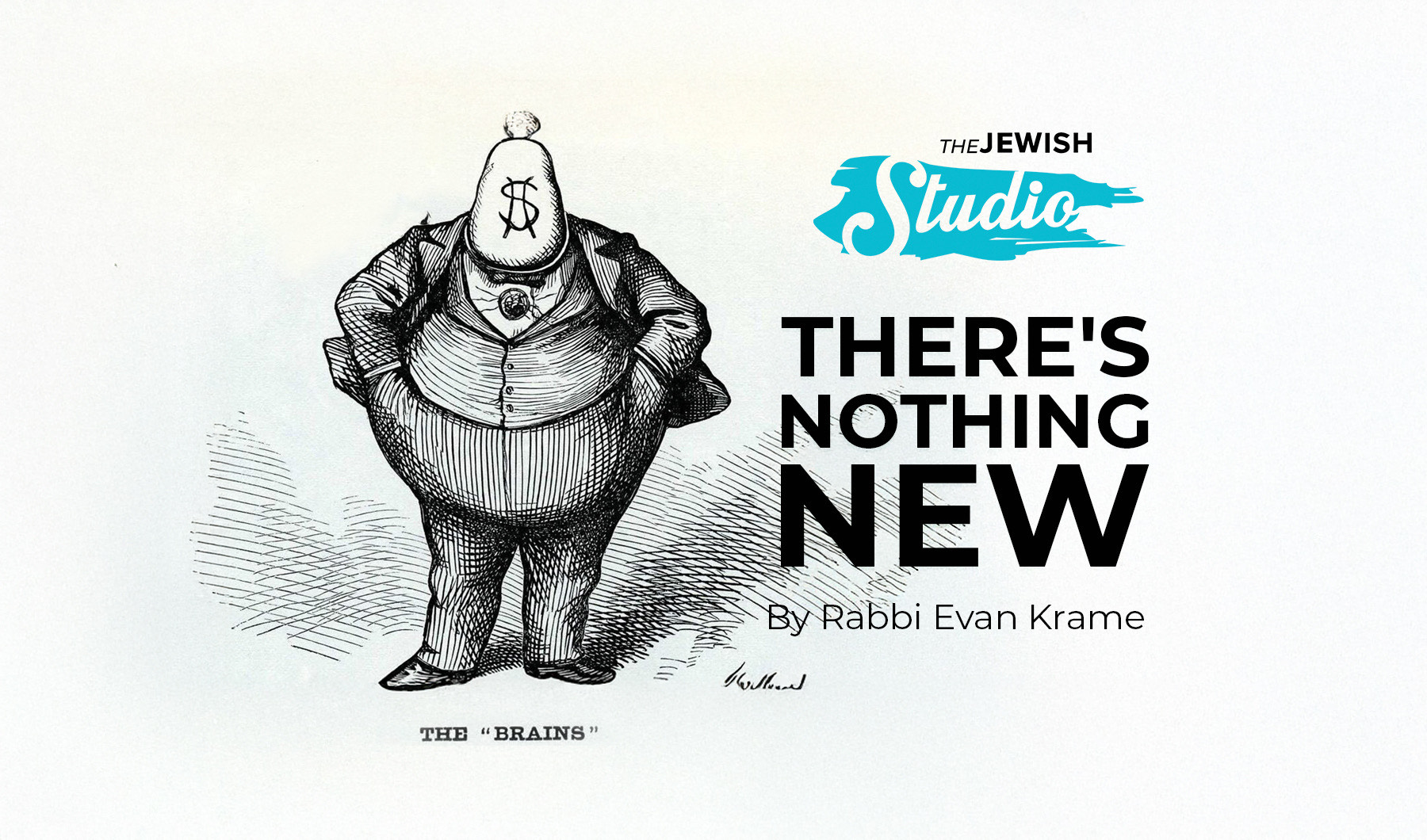The key concept of Rosh Hashanah may be the willingness to sacrifice. What do you have that you would sacrifice? What are you willing to sacrifice? Money, Time, Individualism? For whom are you ready to sacrifice? For your family, your community, the Jewish people?
Abraham is the focus of the Torah reading for Rosh Hashanah. Abraham left Babylonia. He sacrificed his home and his independence to an unknown God and an unseen promised land. Then God tested Abraham him. Was Abraham willing to sacrifice his son Isaac? God gave the command. Abraham obeyed. Abraham took his only child to Mt. Moriah with wood and firestarter. Some sages taught that Abraham demonstrated absolute faith in his willingness to sacrifice his son.
While studying at the Hartman Institute in Jerusalem this summer, Micah Goodman offered some thoughts on the concept of sacrifice. He began with a census. In Exodus 30:11 in the Torah, a census was taken and a half shekel payment was paid as redemption for each person counted. Without the half shekel, there would be a plague.
Centuries later, King David ordered a census with disastrous results. As King, David laid the foundations of a nation. He had waged wars and united the tribes. David made Israel a nation just like the other nations, militaristic and subduing their own people.
To succeed in conquest, a King needed to count the available soldiers. The King needed to count the farms and farmers to know how much grain and animals the King could take. To build a monarchy, a King counted the people, not as unique and precious, but as sources of power and wealth.
In II Samuel 24:1, the story of King David takes a turn. “The anger of the LORD again flared up against Israel; and He incited David against them, saying, “Go and number Israel and Judah.” David knows the danger of taking a census. Yet, David follows God’s command and orders a census to be conducted.
After the census, the prophet Gad approaches. Three punishments are proposed, a three-month rout by Israel’s enemies, a seven-year famine, or a plague. Each of these will hurt multitudes of people. Ultimately, God sent a plague that killed 70,000.
Judaism rejects the world where census taking reduces people to mere numbers. The role of Judaism is to tell the world that each person is precious. Each is created in the image of God, each as valuable as a world unto herself. The nations of the ancient world subjugated people and dehumanized them with submission, conscription, and slavery. Judaism rejects power structures that diminish humanity.
As Rabbi Jonathan Saks wrote: “The numbering of a people is the most potent symbol of mankind-in-the-mass, of a society in which the individual is not valued in and for him- or herself but as part of a totality whose power lies in numbers.” Israel should be a nation of priests not a list of numbers. God offers love to people whose strength has nothing to do with numbers; God cares for people, not empires.
After the plague began, an angel of destruction approached Jerusalem. David cried out to God. “I alone am guilty, I alone have done wrong; but these poor sheep, what have they done? Let Your hand fall upon me!” David offered himself as the sacrifice needed to stop the plague. David was willing to sacrifice himself for his people.
God heard David’s offer and stopped the plague. David was told to offer sacrifice to God on the threshing floor of a Jebusite’s farm. The sages say that the threshing floor became the location of the Temple, built by David’s son Solomon. This story again links back to where we started, with Abraham and Isaac at Mount Moriah. Mount Moriah too is the location of Jerusalem.
Abraham was asked to sacrifice his son and promptly did so. He only stops when the angel stays Abraham’s hand.
David took a census despite the risk. He failed this test. David is unprepared for the sacrifice to come. Of his people, his flock, 70,000 died.
Abraham is steadfast in his obedience. David is vacillating between his duty to God and his control of the nation.
Then, David offered himself as a sacrifice to stop the plague. Perhaps he realized that the monarchy had the potential to replace Judaism with the worship of power. Maybe he repented his role in creating an unholy kingdom. His atonement was to lay the foundation for the Temple to be built in Jerusalem.
Judaism boils down to three locations: Eden, Sinai, and Jerusalem. Eden is the creation of the world. Sinai is the revelation of God’s word. Jerusalem is the promised land’s capital. And then we hope for a messianic time, which is the return to Eden. The loop is closed.
The “Jerusalem” has its foundation in the stories of Abraham and Isaac and David and the census. The ideal of Jerusalem is the spine that holds Judaism together. Jerusalem is not just a city. It is a religious archetype. Jerusalem represents the land promised to Abraham by God for the treasured people saved from slavery by God. Torah commanded we create a place for God, a Bet HaMikdash, a Temple, ultimately built in Jerusalem. There was established a place of sacrifice where Abraham would have sacrificed Isaac. Where King David sacrificed to stop a plague. Sacrifice in Jerusalem was the operating system of Judaism. Jerusalem represents the willingness to sacrifice for God.
Does sacrifice continue to be an essential part of the Jewish experience? Judaism demands sacrifices, sacrifices of your time, your earnings, and your independence. We sacrifice time to prayer and to rituals. We sacrifice our money, to feed the hungry, clothe the naked, care for the widow, and care for the orphan. We sacrifice our independence as we are not complete as people without our attachment to the Jewish community. We are intertwined, all Israel responsible for one another.
Micah Goodman, whose lecture initiated this discussion, fears that sacrifice is no longer at the core of Jewish identity. What becomes of Judaism when we no longer sacrifice time to prayer and rituals? What becomes of people when we fail to care about each other’s needs? What becomes of Judaism, without a willingness to sacrifice some of our independence in exchange for Jewish connection and identification?
The system of Jewish worship was built on sacrifices. The offering of animals, incense, or foodstuffs demonstrated devotion in the ancient world. With the destruction of the Temple in the Roman era, sacrifice was replaced with a complex system of Tefilah, Teshuvah, and Tzedakah – prayer, repentance, and charity. Prayer, repentance, and charity all require personal sacrifice.
Meanwhile, modernity, wealth accumulation, and individualism are blessings that improve our lives and curses in Judaism’s view of the ideal world.
Modernity steals time from spiritual development to economic growth. The computer age, the internet age, the information age, and the virtual reality age provide compelling alternatives to spiritual life and ritual observances. Most people are not willing to sacrifice television for a day of rest.
Wealth is idolized, and poverty is increasing. Rich nations take from poor countries. Wealth is concentrated in relatively few people. Our government is a plutocracy, rewarding special interests with money and power. Meanwhile, we are unable to sacrifice a little of our wealth to end poverty or cure disease. Judaism requires tithing and tzedakah to meet everyone’s needs. We can afford to end poverty in the United States by providing a universal basic income. The estimated cost to end poverty is $175 Billion. The military costs about $800 Billion. We choose to have poverty in the United States because we are unwilling to sacrifice our advantages for the sake of the many who are hungry today.
Individualism is a thinly veiled egotism. We sanctify individual rights as God-given and sacred. Yet, the elevation of individual rights is often recast as individuals choosing themselves over the collective. That individualism is born of nihilism and narcissism. Jews are selecting the “me” over the “we” are preferring the “I” to the “us.” We won’t sacrifice any of our independence for our religion or people’s sake.
My teacher, Micah Goodman, was chiefly concerned about Israel. Modern Israel was founded on a willingness to sacrifice life, wealth, and independence for a safe homeland for the Jewish people. That was Zionism! Devotion to Zion is eroding in Israel. Groups of Israelis are forcing the government to serve their needs without regard for the nation or the Jewish people. For example, the ultra-Orthodox in Israel are insulated from army service while receiving inordinate Government subsidies for their communities. Meanwhile, reservists, alarmed at the Government’s recent actions, will cease to serve the nation. The willingness to sacrifice for Israel is fading fast.
On Yom Kippur, we offer a martyrology service about rabbis who died for Judaism. The martyred sages call to us through the ages. They are asking, what would you sacrifice for Judaism, for the sake of the Jewish people, for a Jewish future? Save your lives, . . but are you willing to give of your time, wealth, and independence?
When you have what to die for, you have something to live for. Judaism has given the world a legacy of hope. Judaism affirms the inherent value of each human being. Our religion is a testament to the value of freedom and to human rights. Judaism speaks to the dignity of each person.
Fewer are willing to sacrifice for Judaism. People are unplugged from religious life and plugged into their devices. Perhaps we fear failing the test – as God tested Abraham and King David. Perhaps we are protective of ourselves, fearful that we don’t have enough time, enough resources, enough freedom.
The challenge for 5784 is to ask ourselves are we willing to sacrifice for Judaism, for the Jewish people, and for a Jewish future. Are we able to show our children and grandchildren, nieces, and nephews, that there is great value in giving time, wealth, and identity to being Jewish.
Judaism is about living in service of something greater than yourself. If you live not according to God’s voice but to your own voice, you will be paralyzed within your ego, fearful, bored, lonely. The key is to find balance, balance between your devotion to the greater cause represented by Judaism and self-preservation. A life consumed only with your needs is not a life well lived. A life only about yourself is imbalanced. A life lived only about yourself is unfulfilled. May this be a year in which you find the balance, recognizing the value in sacrifice that is the foundation of Judaism.
Rabbi Evan J. Krame





